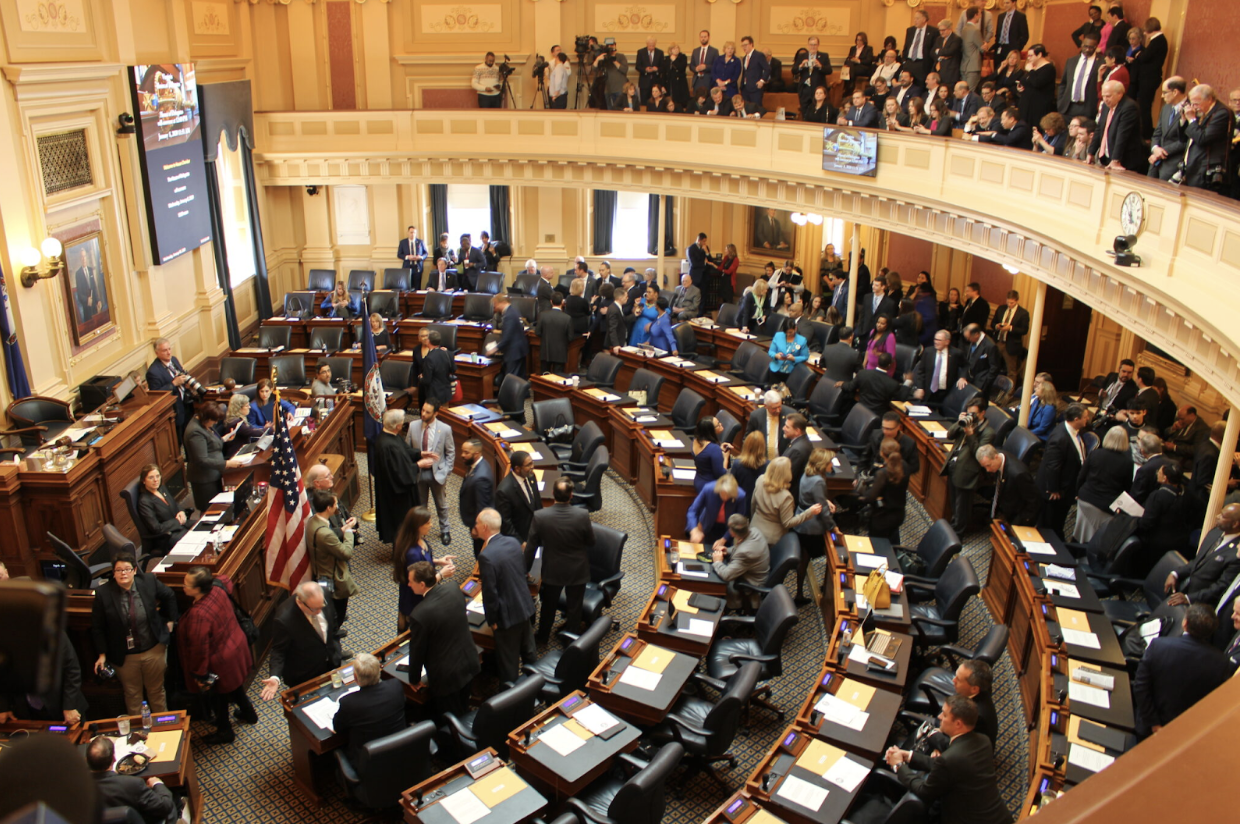The House Privileges and Elections Committee has advanced three resolutions proposing sweeping changes to the Virginia Constitution. The resolutions would make language expanding felon voting rights, protecting abortion, and redefining marriage all constitutional issues.
On abortion, the proposed language would make reproductive freedom a fundamental right and reduce regulations on third trimester abortions. The second resolution would automatically restore felons’ voting rights at the conclusion of their prison sentence. The third defines marriage simply as a fundamental right and removes gender specific language in marriage laws.
The marriage amendment received bipartisan support and legislators say it merely brings state law in line with the US Supreme Court’s Obergefell decision.
The other two resolutions have faced significant opposition from some Republicans who object both to the content of the proposals and the process Democrats have used to advance them.
According to House Republican Leader Todd Gilbert, Democrats have rushed the legislation and broken with protocol by pushing proposals through committee when the General Assembly is not in session and avoiding additional public hearings on amendments.
“I think we still don’t know, other than it’s pretty clear that this is a pretty extreme version of efforts to protect abortion that goes well beyond what has been done in other states,” Minority Leader Todd Gilbert said. “Something this important, this impactful, literally, life and death decisions. I don’t think I’ve ever seen anything push through this fast.”
Republicans report being shocked by the broad language used in the amendments and were given only five minutes notice to read legislation.
“We were literally given five minutes to huddle and look at it before we had to decide what we were grappling with,” Gilbert said.
This is the first step in a multi-year process required for Constitutional Amendments. Resolutions must pass two General Assemblies separated by an election then go to the public for vote.

